Spirituality is a captivating concept that often weaves itself into our conversations, yet for many, truly grasping its essence feels like trying to catch smoke with bare hands. At its most basic level, spirituality refers to a profound connection to something far grander than oneself.
The rewards of cultivating one’s spiritual self are vast – ranging from achieving mental equilibrium to gracefully navigating through life’s twists and turns. Just keep this in mind: just like fingerprints – no two individuals’ spiritual journeys will be identical.
Key Takeaways
- Spirituality is about feeling connected to something bigger than ourselves, whether it’s God, the universe, nature, or the good in people around us.
- Spirituality has evolved and is no longer confined to traditional religious practices. It can be found in everyday life through meditation, mindfulness, and exploring nature.
- Embracing spirituality offers numerous benefits such as finding inner peace, understanding life’s purpose, cultivating positive emotions like love and compassion, and navigating through life’s challenges gracefully.
What is Spirituality and its Evolution
The change in what spirituality means did not happen fast. Hundreds of years ago, people used it as a part of their religion. Today, some still do that, but many others use it on their own.
They want to find peace inside and make sense of life itself – no church needed.
Spiritual growth is like going on a long trip with your soul leading the way. You keep learning more about yourself and the world around you as you go along.
Etymology
The word “spirituality” comes from Latin. It came from the root “spiritus”. This word means breath or wind. It talks about life and strength. In old times, people used it to talk about spirits.
These spirits could be good or bad.
Over time, this changed a bit. People started using it to talk about the spirit inside them. They said this spirit was their true self, the part of them that is not their body.
Now, we use “spirituality” in many ways. It helps us speak about deep things like our place in the world and our ties to others and nature.
Definition

Spirituality is a broad idea. It’s all about feeling a deep bond with something bigger than us. This can be God, the universe, nature, or even the good in people around us. You don’t have to attend church or follow a particular faith to be spiritual.
On top of that, spirituality also means different things to different folks. For some, it’s tied closely with their belief in God and religion. For others, it may be sought through personal growth, love for nature, or meditation practices.
The focus is on our inner path towards understanding life’s purpose and finding peace within oneself – which we often call “Inner peace”. Spirituality lets us hit a pause on life’s strain and helps us find calm within ourselves.
Development of the Meaning
The meaning of spirituality has evolved. It is not just about religious practices or beliefs anymore. Spirituality now includes a broader sense of seeking connection with something greater than oneself, finding inner peace, and living in harmony with the world around us.
In the past, spirituality was mainly associated with organized religion and rituals. But as society has changed, so has our understanding of spirituality. Today, it is more about personal experiences and individual paths to connect with the divine or universal energy.
We now recognize that spirituality can be found in everyday life, through meditation, mindfulness practices, and even in our interactions with nature. It is a journey of self-discovery and growth that goes beyond traditional religious boundaries.
By embracing this expanded view of spirituality, we open ourselves up to new possibilities for personal transformation and finding deeper meaning in our lives. We can tap into our intuition, explore different spiritual traditions and philosophies, and find unique ways to express our own spiritual beliefs.
Spirituality continues to evolve as we gain new insights from scientific research on its benefits for health and well-being. It offers us an opportunity to explore the mysteries of life while nurturing our inner selves.
Historical Perspectives on Spirituality

Spirituality has a rich history that dates back to ancient times. In the classical to early modern periods, spirituality was deeply intertwined with religious practices and beliefs.
People sought connection with the divine through rituals, prayers, and ceremonies. However, as society evolved, traditional forms of spirituality began to be questioned and challenged.
In more contemporary times, there has been a shift towards individualized spirituality that focuses on personal experiences and self-discovery. This change reflects a broader cultural shift towards valuing personal autonomy and freedom of expression.
People now have the freedom to explore different spiritual paths and find their own unique ways of connecting with something greater than themselves.
Today, there is a growing recognition that spirituality can exist outside of organized religion. Many people find meaning and purpose in unconventional ways such as mindfulness practices, meditation techniques, or exploring nature.
These alternative approaches allow individuals to cultivate their inner selves without adhering to specific religious doctrines or institutions.
In summary,
– Spirituality has evolved from being closely tied to religion in ancient times.
– Traditional forms of spirituality have given way to more individualized expressions.
– People can now explore diverse spiritual paths beyond organized religions.
Classical to Early Modern Periods
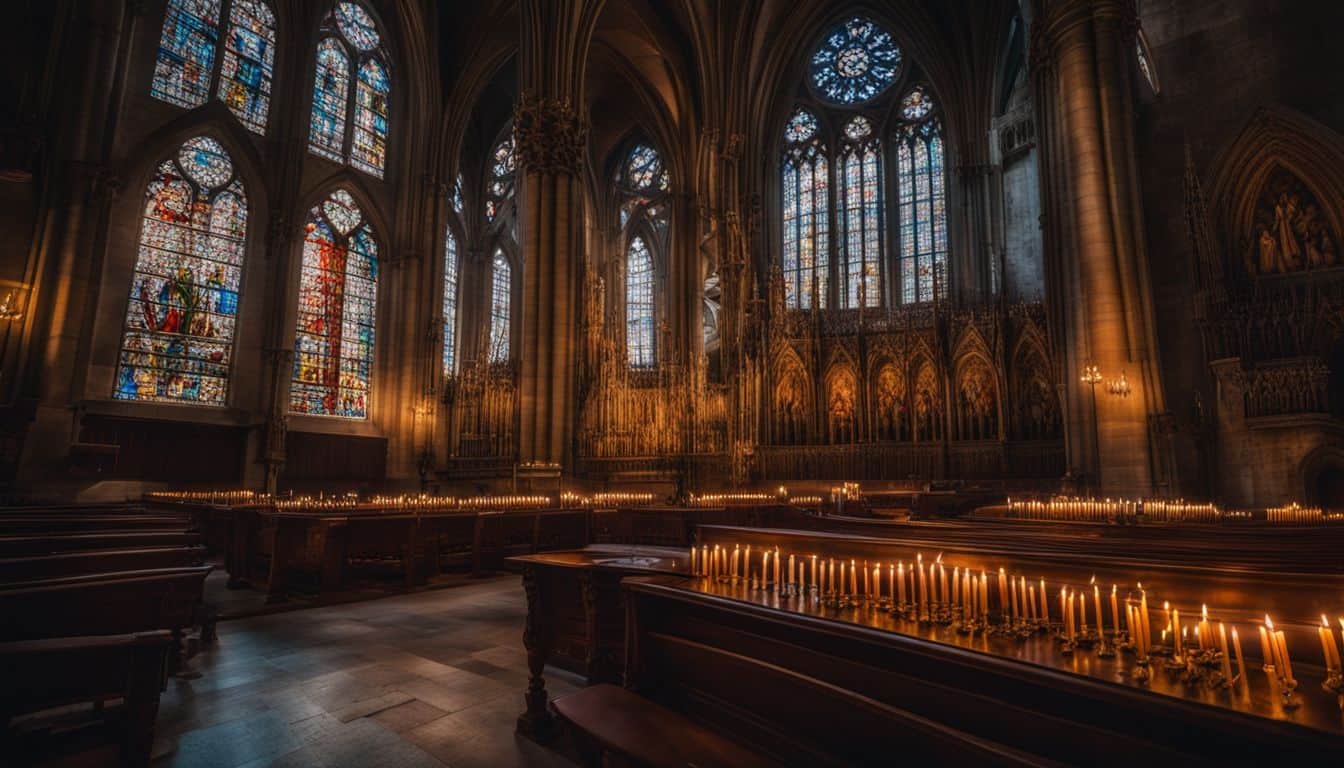
During the classical to early modern periods, spirituality took on various forms and underwent significant transformations. In this era, different cultures and civilizations embraced their unique spiritual practices and beliefs.
For example, in ancient Greece and Rome, spirituality was deeply intertwined with philosophy and mythology. The concept of a divine realm was central to these societies, and rituals were performed to honor gods and goddesses.
In the Middle Ages, spirituality became heavily influenced by organized religion. Christianity dominated during this time, with churches serving as centers for worship and spiritual guidance.
Monasticism also flourished, with individuals seeking solitude and inner reflection through a life dedicated to prayer.
As we moved towards the early modern period (1400-1800), spirituality began to undergo significant changes due to factors such as scientific discoveries, exploration of new lands, and religious reformations.
This period saw increased skepticism towards traditional religious institutions as people sought personal spiritual experiences outside of established frameworks.
Overall, “classical to early modern periods” brought about diverse expressions of spirituality that shaped our understanding up until today.
Contemporary Spirituality

The landscape of spirituality has significantly evolved, transitioning from traditional to contemporary approaches. Let’s delve into these two paradigms and understand their distinctions and convergence.
| Traditional Spirituality | Contemporary Spirituality |
|---|---|
| Traditional spirituality typically adheres to a specific religious doctrine or cultural practice. It involves structured rituals, ceremonies, and codes of conduct, emphasizing community and shared faith. | Contemporary spirituality is more individualistic, focusing on personal well-being and self-growth. It often incorporates aspects from various religious and spiritual traditions, fostering an eclectic approach. |
| Traditional spirituality tends to be more prescriptive, providing clear guidelines and parameters for spiritual practice. It often revolves around the veneration of deities or spiritual figures. | In contrast, contemporary spirituality is more flexible and receptive to personalized interpretations. It emphasizes the individual’s spiritual journey and encourages exploration outside traditional religious boundaries. |
| Contemporary spirituality vs Traditional, however, often seeks to integrate the spiritual and material worlds, promoting a balanced approach toward life and spirituality. | Contemporary spirituality often empowers the individual to seek and experience the divine or spiritual realm independently, emphasizing personal experience over institutional mediation. |
| Traditional spirituality often views the material and spiritual worlds as separate realms, emphasizing the need for renunciation or asceticism to attain spiritual growth. | Contemporary spirituality, however, often seeks to integrate the spiritual and material worlds, promoting a balanced approach towards life and spirituality. |
In essence, while traditional spirituality offers a time-tested, structured way of spiritual exploration, contemporary spirituality champions individualistic, holistic, and integrative approaches. Both paradigms have their unique strengths and can coexist, offering diverse pathways for spiritual seekers to navigate their spiritual journey.
Religion and Spirituality: An Intersection

Religion and spirituality often intersect and influence each other. While religion is more structured and organized, spirituality focuses on a personal connection with the divine or higher power.
It’s important to note that spirituality is not limited to any specific religion and can be practiced by anyone, regardless of their religious beliefs.
In some religions, such as the Abrahamic faiths (Christianity, Judaism, Islam), spirituality plays a central role in connecting with God or a Higher Power through prayer, meditation, and acts of worship.
Indian religions like Hinduism and Buddhism also emphasize spiritual practices such as yoga and meditation for achieving enlightenment and self-realization.
African spirituality incorporates sacred rituals and beliefs about nature, ancestors, spirits, and cosmic energies. These traditions value a deep connection with the natural world while recognizing the presence of unseen forces in everyday life.
Overall, both religion and spirituality offer individuals guidance on finding meaning in life, cultivating inner peace, developing moral values, and experiencing a greater sense of purpose.
They provide frameworks for navigating life’s challenges while fostering personal growth and well-being.
Abrahamic Faiths

Judaism, Christianity, and Islam are the three main religions that fall under the category of Abrahamic faiths. These religions trace their roots back to Abraham, who is considered a significant figure in each of them.
While they have their own unique beliefs and practices, they all share a common focus on monotheism (belief in one God) and place importance on faith, prayer, and divine guidance. Each religion has its sacred texts – the Torah for Judaism, the Bible for Christianity (which includes both the Old Testament shared with Judaism and the New Testament), and the Quran for Islam.
In these faiths, spirituality revolves around connecting with God or Allah through acts of worship, following moral teachings, and seeking spiritual enlightenment. Mysticism is also present in these religions as people seek a deeper understanding of spiritual truths, through practices such as meditation or contemplation.
Indian Religions
Indian religions, such as Hinduism, Buddhism, Sikhism, and Jainism, have a deep-rooted belief in spirituality. These religions emphasize the connection between individuals and a higher power or divine energy.
According to the Pew Research Center, 98% of Hindus in India believe in God, with 79% believing with absolute certainty. This is stated in multiple search results including the Wikipedia article on God in Hinduism and Pew’s report on religious beliefs in India. Additionally, about half of Indians across different religions believe in angels or benevolent spirits.
Hinduism is the dominant religion in India and is known for its diverse ideas on spirituality and traditions. Unlike some other organized religions, Hinduism does not have a central authority or governing body.
Instead, it emphasizes personal spiritual exploration and inner growth. By exploring Indian religions’ rich heritage and teachings on spirituality, one can gain valuable insights into the essence of life’s purpose and the pursuit of inner peace.
African Spirituality
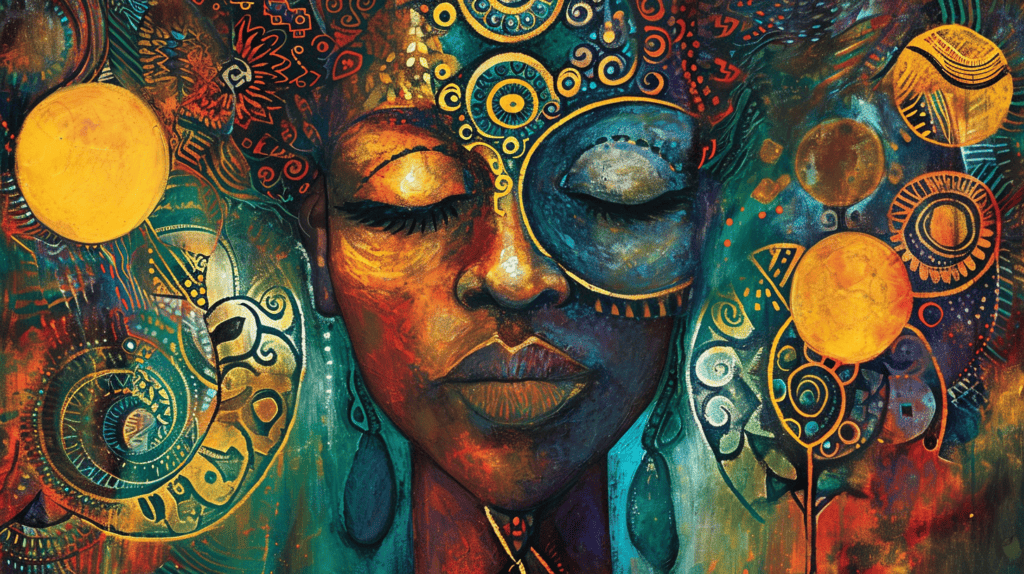
African spirituality is an essential part of traditional African society. It influences many aspects of life, like art, marriage, health, and more. African spirituality has deep roots and goes back to ancient times.
It values the connection to the Motherland and emphasizes respecting the Earth and all creation. In African spirituality, reality and destiny are closely linked to the spirit world.
Traditional healing methods are also a crucial part of African spiritual practices. Faith in African spirituality is solid and unwavering.
African spirituality is deeply rooted in traditional beliefs and practices that have been passed down through generations. It plays a central role in many aspects of life for people who follow this path, including their understanding of reality and destiny.
Respecting the Earth and connecting with the spirit world are fundamental principles in African spirituality. Traditional healing methods are valued as well. Overall, faith in this spiritual tradition is strong among its followers.
Core Characteristics of Spirituality

Spirituality has several core characteristics that help define its essence. One of these is the spiritual experience, where individuals connect with something bigger than themselves and feel a profound sense of peace and joy.
Meditation and mindfulness also play essential roles in spirituality, allowing people to quiet their minds and be fully present in the moment. Another characteristic is awakening and Kundalini energy, which refers to the process of becoming aware of one’s true self and experiencing a powerful inner transformation.
Chakra balancing and mysticism are also part of spirituality, involving the belief in subtle energy centers within the body that can be aligned for holistic well-being. These core characteristics highlight the depth and richness of spirituality as a practice that goes beyond mere religious beliefs or rituals.
Spiritual Experience
Spiritual experience is a deeply personal and profound connection with something greater than oneself. It can be experienced in many different ways, such as through prayer, meditation, or moments of awe-inspiring beauty in nature.
For me personally, I have felt this connection during quiet moments of reflection when my mind feels calm and peaceful. It’s like a feeling of being connected to the universe and experiencing a sense of unity with everything around me.
This spiritual experience has brought me inner peace and a deeper understanding of myself and the world. Research shows that these experiences can positively affect our emotional well-being, helping us find meaning and purpose in life.
Overall, spiritual experiences are unique to each individual and can take many forms. They can bring about feelings of joy, love, gratitude, or even sadness as we contemplate the more significant questions about life and our place in the world.
Whether it’s through meditation or engaging in religious rituals, spiritual experiences have the power to transform our lives for the better by bringing us closer to our true selves and connecting us with something beyond the material world.
Meditation and Mindfulness

Meditation and mindfulness are powerful practices that can bring numerous benefits to our lives. Here are some key points to understand about meditation and mindfulness:
- Meditation is a technique that helps calm the mind and focus attention. It involves sitting quietly, focusing on your breath or a specific object, and observing your thoughts without judgment.
- Mindfulness, on the other hand, is about being fully present in the moment, paying attention to your thoughts, feelings, and sensations without getting caught up in them.
- Both meditation and mindfulness have been scientifically proven to reduce stress, anxiety, and depression. They can also improve sleep quality and boost overall mental well-being.
- Regular practice of meditation and mindfulness can enhance self-awareness and help cultivate a sense of inner peace and tranquility.
- These practices can increase concentration, improve decision-making skills, and enhance creativity.
- Meditation and mindfulness can also foster compassion towards oneself and others by cultivating a non-judgmental attitude.
- By incorporating these practices into our daily lives, we can develop a greater sense of gratitude, resilience, and overall happiness.
Awakening and Kundalini Energy
Awakening and experiencing Kundalini energy is a powerful part of the spiritual journey. Kundalini energy refers to a dormant, coiled-up force that resides within us. When awakened through practices like meditation and yoga, this energy rises up the spine and passes through different energy centers called chakras, bringing about a deeper connection with divine consciousness.
The process of Kundalini awakening can be transformative, leading to profound spiritual growth and self-discovery. It allows us to tap into our inner power and uncover hidden potentials.
However, it’s essential to approach this practice responsibly and with guidance from experienced teachers or mentors, as it can also be intense and overwhelming if not approached with care.
One example of my experience in awakening Kundalini energy was during a guided meditation session. As I focused on my breath and visualized the rise of energy along my spine, I could feel subtle sensations like warmth spreading throughout my body.
This heightened sense of awareness brought me a deep sense of inner peace and connectedness. It reminded me of the vast potential within myself waiting to be explored.
Overall, awakening Kundalini energy is an exciting journey with immense possibilities for personal growth and spiritual evolution.
Chakra Balancing and Mysticism
Chakra balancing is a practice that helps us achieve spiritual wellness. It involves meditation and focuses on the energy centers in our body called chakras. When our chakras are balanced, it can improve our physical, emotional, and mental health.
There are seven main chakras in our body, each connected to different aspects of life and consciousness. For example, the Root Chakra is associated with stability and grounding, while the Heart Chakra represents love and compassion.
By practicing chakra healing techniques like meditation or energy work, we can bring these energy centers into balance.
When our chakras are balanced, we may experience a sense of inner harmony and peace. This can improve overall well-being and a deeper connection to ourselves and the world around us.
So, if you’re interested in exploring spirituality further, consider delving into the mystical world of chakra balancing.
The Benefits and Healing Power of Spirituality

I believe that spirituality can bring many benefits and have a powerful impact on our well-being. Research shows that engaging in spiritual practices can improve our emotional health and help us cope with negative feelings.
It allows us to seek meaning and connection with something greater than ourselves, which can enhance positive emotions.
Furthermore, there is growing evidence supporting the link between spirituality and better physical health. It suggests that spiritual practices are associated with improved overall well-being.
Additionally, both spirituality and health-related behaviors contribute to better psychological well-being.
Moreover, effective spiritual care has been found to have positive outcomes in various areas of life. It can lower suicide rates, reduce anxiety and depression symptoms, and promote better mental health overall.
Overall, embracing spirituality brings many advantages for our mind, body, and soul. By incorporating spiritual practices into our daily lives, we can experience these benefits firsthand.
Scientific Research
Scientific research has explored the relationship between spirituality and various health-related factors. Studies have found that spirituality plays an essential role in mental well-being, promoting inner peace and a sense of purpose.
Research also suggests that engaging in spiritual practices such as meditation can positively affect overall physical and emotional health. For example, a qualitative study aimed to provide an explanatory definition of spiritual health, highlighting its significance in our daily lives.
Furthermore, the study of awe, presence, and spirituality can inform our connection to nature and enhance our understanding of the world around us.
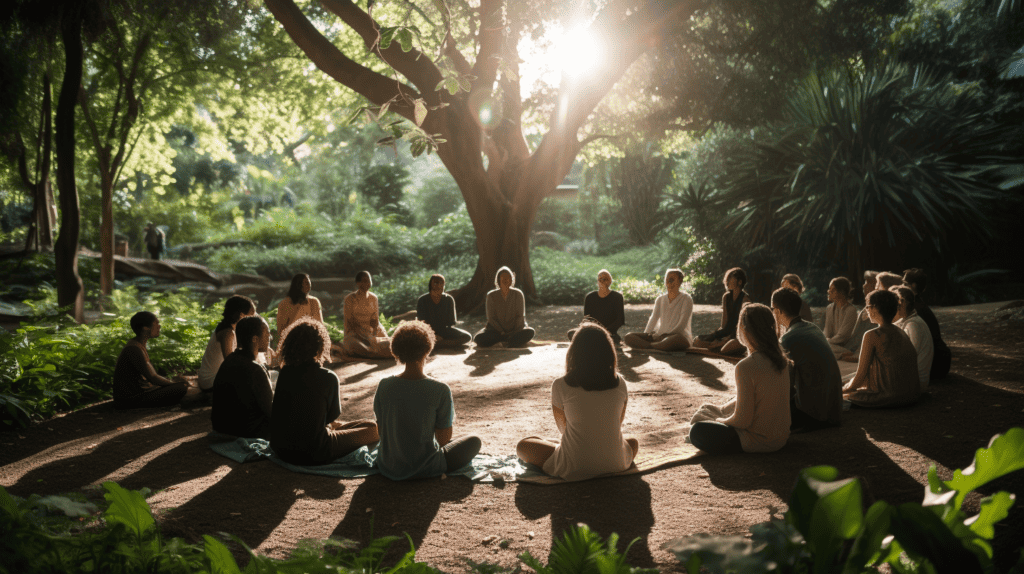
Health and Well-Being
For me, spirituality is not just about connecting to something greater than myself. It also plays a crucial role in my overall health and well-being. Studies have shown that spirituality and health-related behaviors are linked to psychological well-being.
When I am connected to my spiritual side, I find solace during tough times and experience inner peace. This connection brings a sense of purpose and meaning to my life, which positively impacts not only my mental health but also my physical well-being.
Being spiritually attuned helps me balance mind, body, and spirit. It allows me to care for myself on all levels – physically, mentally, and emotionally. Spirituality has even been found to influence outcomes in illness by improving quality of life and helping patients make crucial medical care decisions.
I believe that proper health goes beyond just taking care of our bodies; it involves nurturing our souls as well. When prioritizing my spirituality, I feel more grounded and resilient in facing challenges.
It gives me the strength to navigate through life’s ups and downs with grace and gratitude.
So, for me, embracing spirituality isn’t just a personal choice; it’s an essential part of maintaining good health and overall well-being. By nourishing both my body and soul, I can truly thrive in all aspects of life.
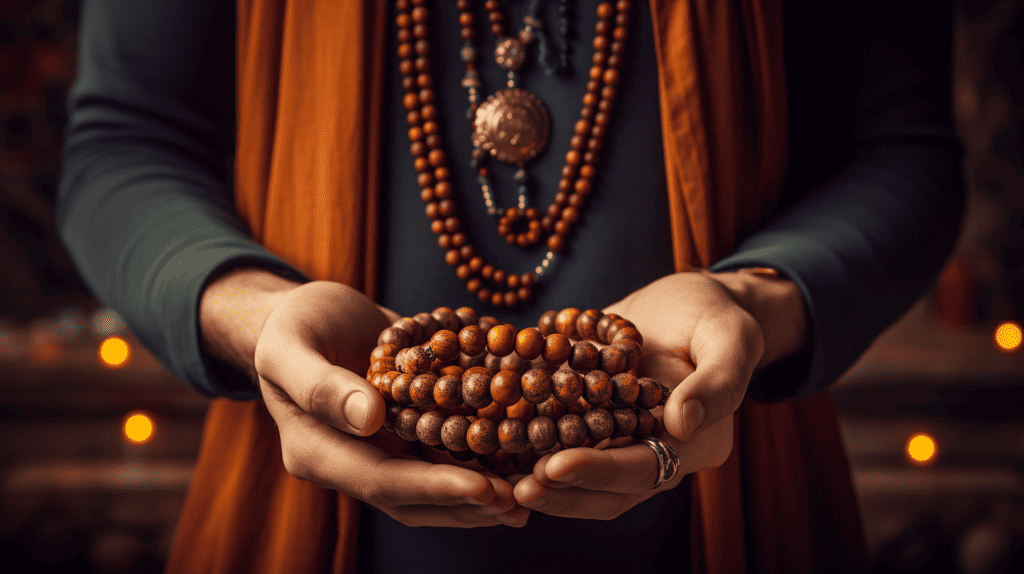
Intercessory Prayer
Intercessory prayer is a powerful practice where we partner with God to accomplish His will and bring glory to Him. It has been used throughout history as a way to seek healing and relief from illness.
When we pray on behalf of others, it is seen as a form of spiritual warfare, fighting against the forces of evil in the heavenly realm.
As intercessors, we believe that our prayers can help raise humanity to share in divine life by participating in God’s plan. Our prayers can bring about positive change and transformation for individuals and communities.
Through intercessory prayer, we can make a difference and be part of something greater than ourselves.
It’s important to remember that intercessory prayer requires faith and trust in God’s perfect timing and wisdom. We may not always see immediate results or understand why certain things happen, but we can be confident that our prayers are heard and that God is working behind the scenes.
So, let us continue to lift our voices in intercessory prayer, knowing that through this sacred practice, lives can be changed and miracles can happen.
Spiritual Healing
Spiritual healing is a practice that can bring comfort and relief to people, regardless of their religious beliefs. It doesn’t require you to have faith or believe in anything specific.
Instead, it focuses on connecting with your inner self and finding peace and balance in your life.
Through spiritual healing, you can experience physical relaxation, gain a deeper understanding of yourself, and feel more connected to others around you. It can promote inner peace and help you cope with stress or difficult emotions.
Studies have shown that spirituality can have positive effects on mental health, especially for those dealing with cancer or clinical depression. It provides a sense of purpose and meaning in life, offering hope and strength during challenging times.
Whether through meditation, energy work, or other practices, spiritual healing can be a powerful tool for personal growth and well-being. It allows you to tap into your inner wisdom and find guidance from within.
Remember that anyone can benefit from spiritual healing practices – skeptics included! So don’t hesitate to explore this path if it resonates with you. Embrace the opportunity to connect with your higher self and discover the transformative power of spirituality in your own life.

Spirituality in Various Forms
Spirituality can take many different forms and manifest in various aspects of our lives. For some, connecting with nature and practicing yoga is a way to experience spirituality. Being in the presence of trees, mountains, or bodies of water can bring a sense of peace and connection to something greater than ourselves.
Yoga combines physical postures with breath control and meditation, providing an opportunity for inner reflection and spiritual growth.
Art, music, and literature are also influential outlets for spiritual expression. Through creative endeavors, we can tap into deeper emotions and explore the mysteries of life. Whether it’s through painting, playing an instrument, or diving into a profound book that explores philosophical concepts or spiritual teachings, these art forms provide avenues for self-discovery and inspiration.
Lastly, enlightenment and wisdom are significant aspects of spirituality. Seeking knowledge from spiritual texts or engaging in philosophical discussions helps expand our understanding of the world around us.
It allows us to contemplate life’s big questions and gain insight into our purpose here on Earth.
So whether it’s through connecting with nature, expressing ourselves through art forms like music or literature, or seeking wisdom from ancient teachings – these different forms offer unique pathways to explore our spirituality and deepen our connections to the divine.
Nature and Yoga
Nature and yoga are deeply interconnected, with both offering immense benefits to our spiritual well-being. Spending time in nature helps us experience a sense of awe and wonder, leading to a greater appreciation for the world around us.
This connection with nature can enhance our yoga practice by creating an environment that promotes relaxation and mindfulness.
Practicing yoga in natural surroundings allows us to tap into the healing energy of the Earth. The fresh air, gentle breeze, and soothing sounds of nature can help calm our busy minds and bring us into a state of peace and tranquility.
Yoga poses performed outdoors allow us to connect more deeply with our breath, body, and surroundings.
Moreover, research has shown that spending time in nature reduces stress levels and improves overall well-being. Similarly, daily yoga practice has been found to lower anxiety levels and promote mental clarity.
By combining these two practices, we can enhance their benefits on our physical, emotional, and spiritual health.
So, let’s embrace the beauty of nature as we deepen our yoga practice. Take your mat outside or find a quiet spot under a tree where you can meditate or perform your favorite asanas.
Allow yourself to be fully present in the moment as you connect with your inner self while being surrounded by the wonders of nature.
Remember that both nature and yoga remind us of our connection to something greater than ourselves – whether it’s the vastness of the universe or the infinite wisdom within us. Embrace this profound connection between nature and yoga as you embark on your spiritual journey toward enlightenment, inner peace, and personal growth.
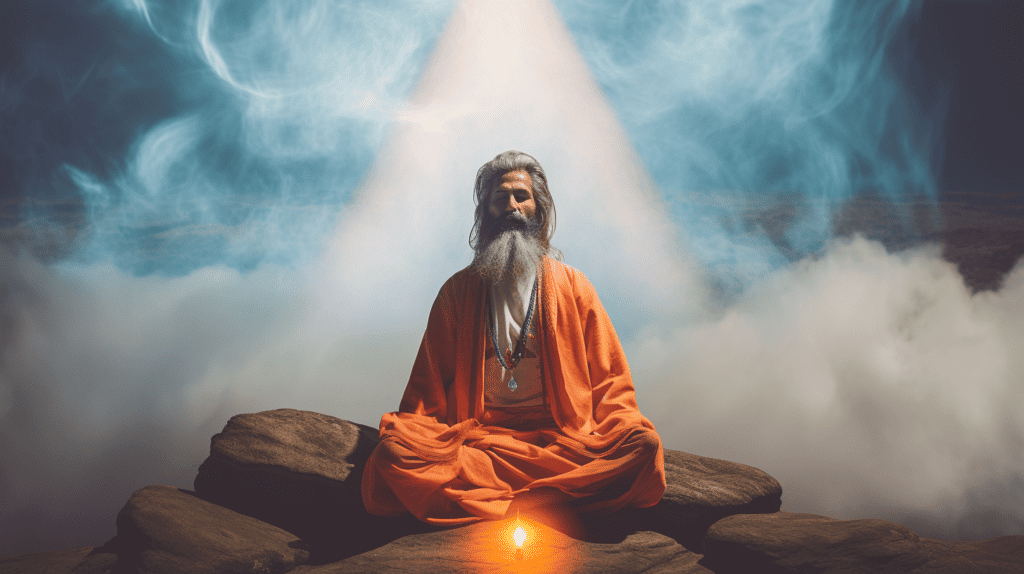
Art, Music, and Literature
Art, music, and literature play a significant role in spirituality. They can inspire and connect us to something greater than ourselves. Music, for example, has been used throughout history as a form of spiritual expression and worship.
Many composers incorporate their philosophical and spiritual beliefs into their compositions, creating music that resonates with our souls. When we listen to this kind of music, it can bring us a sense of peace and connection to the divine.
Similarly, art allows us to explore the spiritual realm by visually representing abstract ideas and concepts. Artists use their creativity as a way to seek meaning in life and express their understanding of the world around them.
The ancient Egyptians believed that art could shed light on our universal quest for meaning and help us connect with the spiritual realm.
Literature also plays a vital role in spirituality by providing stories, poems, or essays that provoke deep thought about life’s big questions. Through reading these works, we can gain insights into different perspectives on spirituality and find inspiration for our spiritual journeys.
In summary, art, music, and literature offer powerful avenues for exploring spirituality by connecting us with something beyond ourselves through creative expression. They provide opportunities for reflection, inspiration, and growth along our paths to enlightenment.
Enlightenment and Wisdom
Enlightenment is a state of deep understanding and wisdom that can be achieved through spiritual practices. It is not just about gaining knowledge, but it’s also about experiencing a profound shift in consciousness.
When you reach enlightenment, you see the world from a place of inner peace and clarity. You feel connected to something greater than yourself and have a sense of oneness with all beings.
This wisdom guides your actions and choices, leading you towards a life filled with compassion, love, and harmony. Along the journey to enlightenment, you may experience moments of awakening where old beliefs fall away and new insights emerge.
These moments bring forth transformation and growth that contribute to your overall spiritual development. As I’ve embarked on my spiritual journey, I’ve discovered that true wisdom comes from within and can profoundly impact every aspect of our lives.
Exploring Spirituality’s Influence
Spirituality has a profound influence on various aspects of our lives. One area where it has an impact is in the field of science and psychology. Research shows that spirituality and health-related behaviors are positively linked to psychological well-being.
Engaging in spiritual practices, such as meditation and mindfulness, can enhance our mental health and overall sense of happiness.
In addition to its impact on science and psychology, spirituality also plays a significant role in our daily lives and personal transformation. It helps us find meaning and purpose in life, guiding us towards making better choices and decisions.
By embracing spirituality, we can cultivate inner peace and develop a stronger connection with ourselves and others.
Another aspect where spirituality exerts its influence is in the realms of death, astrology, and dreams. Spirituality provides comfort during times of loss or grieving by offering beliefs about an afterlife or higher power.
It also encourages us to explore the symbolism behind dreams and understand their deeper meanings.
Overall, exploring spirituality’s influence can lead to a greater understanding of ourselves, improved mental well-being, enhanced decision-making skills, comfort during challenging times like death or loss, and a deepened connection with something larger than ourselves.
Science and Psychology
Science and psychology are two fields that have a lot to offer when it comes to spirituality. They work together to promote well-being and help us better understand ourselves. For example, scientific research shows that spiritual experiences can help older adults cope with negative feelings and enhance positive ones.
It’s also been found that awe-inspiring science experiences can have a positive effect on our mental well-being. In the field of psychology, theories study how spirituality can impact our overall well-being.
By exploring the connection between science, psychology, and spirituality, we can gain insights into ourselves and find ways to live more fulfilling lives.
Daily Life and Personal Transformation
In our daily lives, spirituality plays a significant role in personal transformation. It’s about connecting with the deeper parts of ourselves and exploring our relationship with the universe.
By integrating spirituality into our daily routines, we can find inner peace and experience positive life changes.
Spirituality is not just about religious practices; it’s about finding meaning and purpose in everyday activities. It involves being present in the moment, practicing mindfulness, and living authentically.
This connection to something greater than ourselves can bring a sense of fulfillment and help us navigate life’s challenges.
Daily spiritual practices such as meditation or prayer can help us cultivate self-awareness, reduce stress, and enhance overall well-being. These practices allow us to tap into our intuition and access higher levels of consciousness.
Through this process, we may discover new insights about ourselves and our world.
As we deepen our spiritual journey, personal transformation naturally follows. We become more compassionate towards others and develop a greater sense of gratitude for life’s blessings.
We start aligning our thoughts, words, and actions with what truly matters to us at a soul level.
Remember that embracing spirituality is an ongoing process that requires patience and perseverance. It’s not about achieving perfection but instead growing spiritually each day. By incorporating spiritual practices into our daily routines, we open ourselves up to unlimited possibilities for personal growth and inner harmony.
Let us embark on this transformative journey together by embracing spirituality in every aspect of our lives!
Death, Astrology, and Dreams
Death, astrology, and dreams are interconnected in the realm of spirituality. When we dream of someone dying who is still alive, it may indicate our spiritual growth and a deepening of our beliefs.
These dreams can hold significant meaning as they symbolize transforming or letting go of certain aspects within ourselves or situations in our lives.
Astrology also plays a role in understanding the spiritual meaning behind dreams. Each zodiac sign is associated with different qualities and energies that can influence our dream experiences.
By exploring our astrological chart and understanding how specific planetary influences manifest in our dreams, we can gain deeper insights into ourselves and the messages from the spiritual realm.
Furthermore, dreams themselves serve as a portal to the divine. They provide us with guidance, messages from higher realms, and even spiritual downloads where we receive information or guidance that helps us on our journey toward enlightenment.
Lucid dreaming, which occurs when we become aware that we’re dreaming while still in the dream state, allows us to navigate these realms and access profound spiritual insights consciously.
In conclusion, death, astrology, and dreams intertwine in spirituality to offer us glimpses into deeper truths about ourselves and the universe. Through understanding their symbolism and seeking connections between these aspects of life, we expand our consciousness and embark on a transformative journey towards greater self-awareness and spiritual awakening.
Traditions, Ethics, and Philosophy
Traditions, ethics, and philosophy play essential roles in spirituality. Different spiritual traditions have their own sets of rituals and beliefs that guide practitioners in living a good life.
These traditions provide standards of goodness by which individuals can evaluate their actions and behaviors. Ethics is an integral part of spirituality, as it involves making choices based on what is morally right or wrong.
Philosophy explores more profound questions about the nature of reality, existence, and meaning. It helps individuals develop a broader understanding of themselves and the world around them.
By embracing traditions, ethics, and philosophy, we can find guidance for our spiritual journey and cultivate a sense of inner harmony.
Spiritual Traditions and Religion
Spiritual traditions and religion are closely connected, but they’re not exactly alike. Religion usually refers to specific organized beliefs and practices, like Christianity or Islam.
On the other hand, spiritual traditions can include a wider range of practices and beliefs that may not be tied to any particular religious institution.
Many religions have their spiritual traditions that help people connect with something greater than themselves. These traditions often involve rituals, prayers, meditation, or sacred texts.
They provide guidance and support for individuals seeking a deeper understanding of life’s meaning and purpose.
However, spirituality is not limited to organized religion. It can also exist outside those structures. People not identifying with any particular religion can still have profound spiritual experiences and beliefs.
Whether you find meaning in organized religion or explore your spirituality on your path, both offer opportunities for personal growth and connection with something greater than ourselves.
It’s important to explore different spiritual traditions and find what resonates with you.
Eastern Spirituality and Symbols
In Eastern spirituality, the focus is on personal growth and finding inner peace. It’s not about following a specific religion but rather about exploring your spiritual journey.
Symbols are an essential part of this journey, as they represent deeper meanings and can help us understand ourselves better. For example, the lotus flower symbolizes purity and enlightenment, while the Om symbol represents the universe and our connection to it.
These symbols remind us of our true selves and can guide us toward spiritual growth and understanding.
Eastern spirituality encourages us to look within ourselves and discover our true nature. Through practices like meditation, yoga, or mindfulness, we can develop a sense of inner peace and harmony.
By connecting with these symbols and exploring their meanings, we can deepen our spiritual connection and gain insights into the mysteries of life. Eastern spirituality teaches us that we are all interconnected beings in this vast universe, and by embracing these symbols, we can embark on a transformative journey toward self-discovery and enlightenment.
Spiritual Ethics and Philosophy
Spiritual ethics and philosophy are essential aspects of spirituality. They guide us in how to live our lives with integrity, compassion, and an understanding of the interconnectedness of all beings.
When I think about spiritual ethics, I am reminded of values such as kindness, forgiveness, honesty, and respect for ourselves and others. These principles help us be mindful of our actions and choices and bring a sense of harmony to our relationships and the world around us.
In terms of philosophy, spirituality offers a framework for exploring life’s big questions about existence, purpose, morality, and the nature of reality. It encourages us to delve into deeper truths beyond what can be seen or measured.
By contemplating these philosophical concepts through practices like meditation or reflection on sacred texts or teachings from spiritual leaders or mentors, we can gain insights into the meaning of life and develop a greater sense of wisdom.
One important principle that often emerges in spiritual ethics is the concept of nonviolence or ahimsa. Ahimsa refers to avoiding harm through one’s thoughts, words, and actions, and cultivating compassion for all living beings. It has roots in ancient Indian religions like Hinduism, Jainism, and Buddhism, and was popularized by leaders like Mahatma Gandhi.
For many spiritual seekers, practicing nonviolence is seen as essential for self-purification, spiritual progress, and living ethically. By avoiding violence in all forms, one reduces suffering and nurtures wisdom and inner peace.
By embracing spiritual ethics and engaging with philosophical inquiries along our spiritual journey, we can deepen our understanding of ourselves and the world around us. It allows us to align our actions with our values and helps create a more compassionate, just, and harmonious society.
So, as you explore spirituality further, consider how ethical principles and philosophical concepts are woven into its fabric, guiding you toward growth and enlightenment.
Guidance, Gurus, and Growth
A guru is like a spiritual teacher who helps people on their journey to self-discovery and enlightenment. They guide us and show us a new way of thinking. In Hinduism, the role of a guru is vital for spiritual guidance.
A true guru has deep insight and compassion, and they can help awaken the divine within us. Many people seek solace, meaning, and guidance through spirituality, and gurus are vital in helping them find their path toward growth and transformation.
Resource: “The Role of Guru in Spiritual Life”
Spiritual Retreats
I love going on spiritual retreats. They are an excellent way to escape from the busyness of life and connect with my inner self. Here are some reasons why I find these retreats so meaningful and beneficial:
- Prayer and solitude: During a spiritual retreat, I spend time alone in prayer and reflection. This allows me to deepen my connection with God or the higher power that I believe in.
- Inner peace and clarity: Being away from distractions helps me find inner peace and clarity. It’s a time for introspection, where I can explore my beliefs, values, and life purpose.
- Nature’s healing presence: Many spiritual retreats occur in natural settings like mountains or forests. Being surrounded by nature’s beauty enhances the sense of tranquility and brings a soothing effect to my mind, body, and soul.
- Emotional healing: Spiritual retreats provide a safe space for emotional healing. By engaging in activities like journaling or participating in guided meditations, I can release negative emotions and find healing from past hurts.
- Transformational experiences: Retreats often include workshops or teachings that inspire personal growth and transformation. They offer valuable tools, techniques, and insights that can be applied to everyday life.
- Community support: Joining a spiritual retreat allows me to connect with like-minded individuals with similar interests and goals. The support of this community creates an uplifting atmosphere for spiritual growth.
- Disconnecting from technology: Being away from technology during a retreat helps me disconnect from the constant noise of the outside world. It gives me an opportunity to be present in the moment without distractions.
- Rejuvenation and self-care: Retreats prioritize self-care through activities like yoga, meditation, healthy meals, or spa treatments. Taking care of my physical well-being contributes to overall rejuvenation during the retreat.
- Guidance from teachers or mentors: Spiritual retreats often feature experienced teachers or mentors who provide guidance and wisdom. Their presence helps me gain new perspectives and deepens my understanding of spirituality.
- Renewed sense of purpose: After a retreat, I often feel refreshed and inspired. I return to my daily life with a renewed sense of purpose, ready to integrate the lessons learned into my everyday routine.
Gurus and Teachers
Gurus and teachers are essential figures in the realm of spirituality. They have a deep understanding of spiritual knowledge and can guide us on our spiritual journey. In Hinduism and Sikhism, gurus hold a special place as they provide guidance to seekers who want to connect with their spiritual essence.
Gurus impart wisdom, teach spiritual practices, and help individuals deepen their connection with the divine. Through gurus and teachers, we can learn valuable lessons about life, find answers to our questions, and gain insight into our inner selves.
It is essential for both the teacher and student to approach this relationship with integrity and respect as it plays a significant role in an individual’s spiritual growth.
Spiritual Growth and Awakening
Spiritual growth and awakening are fundamental aspects of the spiritual journey. It is a process that involves profound inner transformation and self-discovery. When we embark on this path, we open ourselves up to new possibilities, wisdom, and understanding about ourselves and the world around us.
During spiritual growth, we learn to connect with our higher self and tap into our innate wisdom. It is a journey of personal evolution where we shed old beliefs and patterns that no longer serve us.
By doing so, we create space for new insights, perspectives, and experiences.
Awakening refers to realizing our true nature – that there is more to life than what meets the eye. Through spiritual practices such as meditation, mindfulness, or prayer, we cultivate a deeper connection with something greater than ourselves.
This divine connection allows us to access inner peace, love, compassion, and profound joy.
Throughout this process of growth and awakening on our spiritual journey seek guidance from teachers or mentors who can offer support along the way. They help navigate challenges or doubts you may experience during this transformative journey while providing valuable insights drawn from their own experiences.
It’s important to remember that spiritual growth is not a destination but rather an ongoing exploration. Embracing this lifelong quest leads us towards greater self-awareness, inner harmony, and living a more purposeful life aligned with our higher selves.
Distinguishing and Measuring Spirituality
Measuring spirituality is crucial because it helps us understand how it affects our lives and well-being. We need a way to measure spirituality that goes beyond specific beliefs so that people from different religions or belief systems can participate.
One way to do this is through questionnaires that ask about our sense of connection with others, our sense of purpose in life, and our relationship with something greater than ourselves.
These questionnaires allow researchers to gather data on spirituality and analyze its impact on health-related outcomes.
Different dimensions of spirituality can be measured. One dimension is interconnectedness, which refers to how connected we feel to others and the world around us. Another dimension is virtue, which involves qualities like compassion, forgiveness, gratitude, and humility.
Calling is another dimension, which relates to finding meaning and purpose in life. Finally, religious practices are also considered part of spirituality.
Researchers have developed various models and instruments for measuring religiosity and spirituality. These tools help quantify the importance of spirituality in people’s lives while considering their unique beliefs and experiences.
By using these measurement tools, we can gain insights into the role of spirituality in personal growth, well-being, and overall satisfaction with life.
Tools and Types
When exploring spirituality, some different tools and types can help deepen your connection and understanding. Here are some examples:
- Meditation: This practice involves focusing your mind and finding inner peace. It can be done in various ways, such as mindfulness meditation or transcendental meditation.
- Prayer: Whether through reciting prayers or having personal conversations with a higher power, prayer allows you to communicate with the divine and seek guidance.
- Rituals: Rituals are symbolic actions with deep meaning for individuals or communities. They can be performed alone or in groups to honor spiritual beliefs and traditions.
- Journaling: Writing down your thoughts, feelings, and experiences in a journal can be a powerful tool for self-reflection and spiritual growth.
- Sacred texts: Many religions have sacred texts that contain teachings, stories, and moral guidance. Reading and studying these texts can provide insights into spirituality.
- Energy work: Practices like Reiki, acupuncture, or sound healing focus on balancing the body’s energy centers (chakras) to promote physical, emotional, and spiritual well-being.
- Nature connection: Spending time in nature can be a profound way to reconnect with our inner selves and appreciate the beauty and interconnectedness of all living beings.
- Spiritual retreats: Retreats offer dedicated time away from daily life to engage in activities like meditation, yoga, workshops, or discussions focused on spirituality.
- Spiritual communities: Joining a community of like-minded individuals provides support, inspiration, and opportunities for shared spiritual practices and learning.
- Inner reflection exercises: Activities such as deep breathing exercises, visualization techniques, or guided imagery can help quiet the mind and connect with your inner wisdom.
Religion
Religion and spirituality are two different things, but they can also be connected. Religion usually involves organized beliefs and rituals, like attending church or following specific traditions.
Spirituality, on the other hand, is more personal and focuses on finding meaning and connection in life. It’s about exploring your own beliefs and having a deep connection with something greater than yourself.
While religion often has set rules and practices, spirituality is more flexible and individualized. It allows you to explore different paths that resonate with you. Some people may find comfort in practicing a specific religion, while others may feel closer to their spiritual side through meditation or spending time in nature.
It’s important to note that being religious doesn’t necessarily mean you’re not spiritual, and vice versa. Many people find a balance between the two by incorporating both religious practices and personal spirituality into their lives.
Ultimately, it’s up to each person to define what spirituality means for them and how they want it to shape their lives.
– Research shows that both religion and spirituality can have positive effects on mental health.
– Engaging in religious or spiritual activities can help reduce stress, bring a sense of purpose, foster forgiveness, and promote overall well-being.
– While some people may turn to organized religion for guidance in their spiritual journey, others prefer a more individualized approach.
– The relationship between religion and spirituality is complex; some individuals find that one informs the other while others separate the two entirely
Signs and Ethical Considerations
As a spiritual enthusiast, it’s essential to be aware of the signs and ethical considerations of exploring spirituality. Signs of a deepening spiritual connection can include feeling a sense of inner peace and calm, experiencing synchronicities or meaningful coincidences, having intuitive insights or “gut feelings,” and feeling a stronger connection to nature and the world around you.
These signs can indicate that you are on the right path and growing spiritually.
However, it’s also crucial to consider ethics in your spiritual journey. Ethical considerations involve being mindful of how your actions impact others and treating everyone respectfully and kindly.
It means practicing compassion, forgiveness, honesty, and integrity in all aspects of life. Being ethical also involves respecting different beliefs and perspectives without judgment or prejudice.
Remember that spirituality is a personal journey, so you must honor your values while staying open-minded toward others. By paying attention to both signs of growth within yourself and being mindful of ethical considerations in your interactions with others, you can continue embracing spirituality in an authentic way that promotes well-being for yourself and those around you.
Practical Spirituality for Everyday Life
Practical spirituality is all about bringing the essence of spirituality into our everyday lives. It’s not just something we do in a temple or during meditation; it’s about finding meaning and connection in every moment.
By embracing practical spirituality, we can experience inner peace, cultivate mindfulness, and live with intention.
Incorporating spiritual practices into our daily routines can benefit our well-being. Scientific research has shown that regular meditation and prayer can reduce stress, improve focus, and enhance overall mental health.
By taking time to connect with our higher selves or divine power, we can find guidance and strength to navigate life’s challenges.
Practical spirituality also means being mindful of how we interact with others and the world around us. It involves living by spiritual virtues such as love, kindness, compassion, and forgiveness.
By practicing these virtues in our relationships and actions, we create a more harmonious and compassionate society.
Incorporating practical spirituality into everyday life doesn’t mean we have to change who we are or what we do entirely. It simply means finding moments throughout the day to pause, reflect, and connect with something greater than ourselves.
Whether it’s through simple acts of gratitude or taking a few minutes for quiet contemplation each day, practical spirituality allows us to infuse our lives with more profound meaning and purpose.
Remember: Practical spirituality is not limited to specific religious beliefs or rituals; it is accessible to anyone seeking a more meaningful existence.
Seeking Meaning and Connection
As spiritual enthusiasts, we constantly seek meaning and connection in our lives. We yearn for a deeper understanding of ourselves, others, and the world around us. This search for meaning goes beyond the materialistic aspects of life and delves into the realm of the soul.
It is a quest to find purpose and fulfillment.
When we seek meaning, we explore questions like: What is my life’s purpose? How can I make a positive impact on others? What brings me true happiness? These inquiries guide us toward discovering our inner truths and aligning our actions with our values.
Connection, on the other hand, involves forging relationships that go beyond superficial interactions. It is about connecting not only with other people but also with nature, higher powers or energies, and even ourselves.
Through these connections, we tap into a sense of belonging and unity with something greater than ourselves.
By seeking meaning and connection in spirituality, we embark on a transformative journey that allows us to transcend daily concerns and find solace in knowing there is something more profound at play in this universe.
It allows us to cultivate inner peace while fostering compassion towards others. In this pursuit of meaning and connection lies the essence of spirituality – offering us guidance as we navigate through life’s challenges while illuminating the path toward personal growth and enlightenment.
• Pitfalls to Avoid
In my spiritual journey, I have learned that there are certain pitfalls to avoid. These can hinder our growth and prevent us from fully embracing spirituality. Here are some essential things to keep in mind:
- Avoid spiritual bypassing: It’s essential not to use spirituality to escape or bypass our emotions and personal issues. Instead, we should use it as a tool for self-reflection and healing.
- Please don’t get caught up in dogma: Spirituality is a deeply personal experience, and it’s important to remember that there is no one-size-fits-all approach. Avoid getting too caught up in rigid belief systems, and instead, focus on discovering your truth.
- Be mindful of ego traps: The ego can sometimes trick us into thinking that we are more spiritually evolved than others. This can lead to arrogance and judgment towards others who may be on a different path. Stay humble and open-minded.
- Don’t chase external validation: True spirituality comes from within, not from seeking validation or approval from others. Avoid getting caught up in the trap of seeking external recognition for your spiritual achievements.
- Be aware of spiritual materialism: Spiritual materialism is the tendency to accumulate spiritual practices, tools, or knowledge without genuinely integrating them into our lives. Instead of focusing on external symbols of spirituality, focus on embodying the principles in your everyday life.
Conclusion on the Essence of Spirituality
Embracing spirituality daily can bring profound meaning and benefits to our lives. It is not limited to any specific religion or belief system, but rather a personal journey of seeking a deeper connection with something more significant.
By exploring spiritual practices and reflecting on universal themes such as love, compassion, and wisdom, we can find inner peace, purpose, and fulfillment. Let us embrace spirituality daily to enhance our well-being and create a more meaningful existence.





Leave a Reply